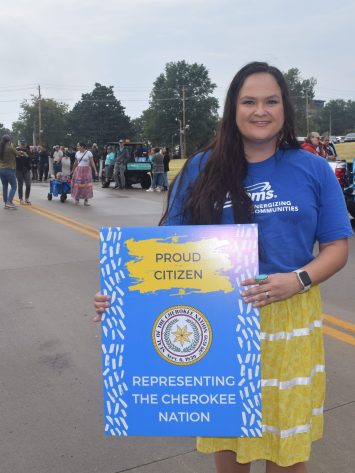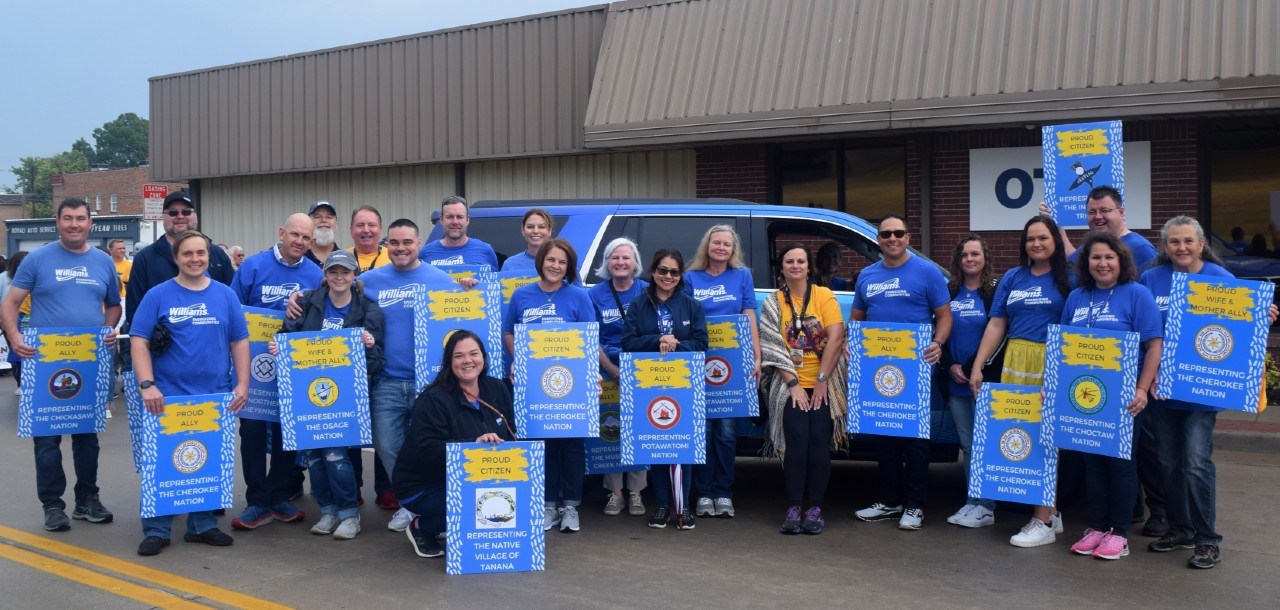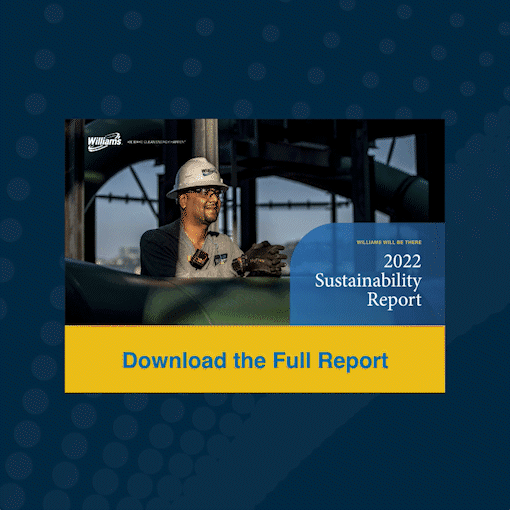Developing trusting relationships with Native American tribes has never been more important for our nation’s energy industry, particularly for those sectors in which Williams operates. Our Human Rights Policy and Statement outlines our commitment to respect human rights and avoid complicity in human rights abuses, including those of Indigenous Peoples. In 2022, Williams had no incidents of violations involving the rights of Indigenous Peoples. Additionally, we continue to use an internal guide covering best practices and recommended processes for successfully engaging this key stakeholder group. Please refer to the Human Rights section for more information regarding how Williams protects human rights.
In the preliminary stages of project development, we conduct geographic information system (GIS) analyses, computer-based reviews and site-specific surveys to locate sensitive environmental, cultural and historic areas, including cultural resources that are of importance to indigenous peoples. As a company with interstate pipelines regulated by FERC, we adhere to Section 106 of the National Historic Preservation Act, which requires consultation on all activities that may affect property of cultural or religious significance to tribes. As part of Section 106, tribes must have a reasonable opportunity to identify concerns about affected properties and advise Williams on the identification and evaluation of these properties. Williams’ public outreach and environmental permitting teams have primary responsibilities for tribal outreach efforts.
To improve our understanding of Indigenous relations, we created an Indigenous Peoples Council that consists of Native American employees and allies, including representation from diverse stakeholder groups across Williams’ departments. The Council continued meeting regularly in 2022 and is exploring the development of a formal company policy relating to Indigenous Peoples. It is also working to formalize a tribal relations guide, recommend training and learning opportunities and discuss ways of improving how Williams considers Indigenous Peoples in supply chain diversity and talent development.
In addition, Williams is enhancing internal conversations around Indigenous issues through our new Native Employee Resource Group (ERG). In 2022, more than 100 Williams employees attended a virtual event hosted by the Native ERG that featured a conversation led by David Grann, author of the novel Killers of the Flower Moon.

Tribal Consultation & Engagement
We work to create constructive dialogues with Native American tribes with mutually beneficial results. As part of that effort, we regularly identify opportunities to incorporate feedback from tribes into our project planning, even when there is no federal mandate to do so.
In 2022, Williams performed a hydrotest on a small segment of the Northwest pipeline mainline in Klickitat County, Washington. Part of the project occurred within a recorded archaeological site that has significant cultural meaning to the Yakama Nation. Although the site was entirely within the pipeline’s existing, previously disturbed right-of-way, Northwest Pipeline notified the tribe about this activity and reiterated its proximity to the archaeological site. Williams consulted with the tribe’s Cultural Resources Program staff and Tribal Historic Preservation Officers (THPO) for several months to develop a project-specific Monitoring and Inadvertent Discovery Plan and provided the tribe with a post-construction monitoring report. The tribe indicated no issues or concerns upon completion of the project.
Other notable engagements in 2022 included consultation with the Muckleshoot tribe to prepare a stream restoration design that met criteria defined by Muckleshoot fishery experts, as well as contracting with the Confederated Tribes of the Umatilla Reservation to monitor a local fish passage in accordance with permit conditions. We also participate on INGAA’s Tribal working group, where we continue to build understanding related to our engagement with Indigenous Peoples. Although the working group did not meet in 2022, we remain in communication with INGAA leaders on the development of future working groups.
As part of our commitment to building positive relationships with Indigenous Peoples, we provide meaningful charitable contributions to tribal initiatives. For the fourth consecutive year, Williams sponsored the Native American Youth Summit and was the presenting sponsor of the Dance of the Two Moons event, benefiting the Indian Health Care Resource Center in Tulsa, Oklahoma. Each year, hundreds of families participate in the Youth Summit, designed to help strengthen the physical, mental, social and cultural well-being of Native American youth.
We pursue opportunities to engage with and celebrate our local Native American communities. Williams sponsored and contributed to the planning of Tulsa’s Native American Day, with the 2022 theme of “Our Journey Continues.” The event included a full day of tribal leader speakers, arts, crafts and food, and concluded with a concert. Several Williams employees volunteered at the event and participated in the event’s parade. In addition, Williams’ Environmental Permitting department began a new partnership with the Euchee Butterfly Farm’s Natives Raising Natives program in 2022. Through this partnership, Williams has participated in events with tribal members and has awarded grant money to the program for the preservation of native seed species that are critical for food and pollination.
Williams also funded a multi-year grant for IllumiNative, a Native woman-led social progress organization, and sponsored the American Indian Science and Engineering Society (AISES) annual conference. The AISES conference is a virtual networking event aimed at increasing the representation of Indigenous Peoples of North America in STEM studies and careers. For more information on community giving at Williams, see Community Investment.
It is so important for Corporations like Williams to partner with the Greater Tulsa Area Indian Affairs to help put on Tulsa Native American Day. Without corporate America, the City of Tulsa could not put on this day to celebrate our culture and heritage. We appreciate our corporate partners so much!
CHERYL COHENOUR, GREATER TULSA AREA INDIAN AFFAIRS COMMISSIONER


